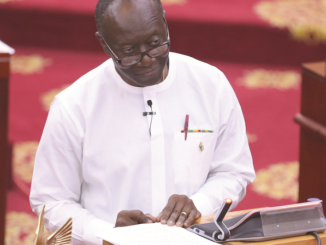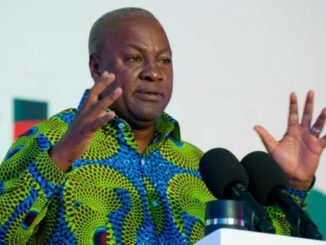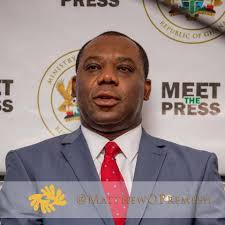 The Executive Director of the United Nations Children’s Fund (UNICEF), Mrs Henrietta Holsman Fore, has extolled President Nana Addo Dankwa Akufo-Addo for the Free Senior High School (SHS) Policy, the benefits of which, she said, were immense, especially for girls.
The Executive Director of the United Nations Children’s Fund (UNICEF), Mrs Henrietta Holsman Fore, has extolled President Nana Addo Dankwa Akufo-Addo for the Free Senior High School (SHS) Policy, the benefits of which, she said, were immense, especially for girls.
Mrs Fore described the policy as probably the greatest gift President Akufo-Addo could give to the Ghanaian family and the girl child. She said the policy was bound to ensure that the girl child would not become a young mother and a young bride, while reducing or preventing maternal deaths.
Mrs Fore was speaking at an event on Friday to mark the achievements of the Education Above All Foundation (EAA) which seeks to enroll ten million children to receive quality primary school education across the world.
President Akufo-Addo, who attended the event as co-Chair of the Group of Advocates of Eminent Persons of the United Nations Sustainable Development Goals (SDGs), said that there was no part of the world that did not recognize the importance of education as the best route to moving out of poverty.
He said the Capitation Grant, introduced some 13 years ago, under the administration of former John Agyekum Kufuor, the 2nd President of Ghana’s 4th Republic, was, presently, enabling six million, three hundred and seventy-one thousand, nine hundred and seventy-five (6,371,975) school-going children, representing some 90% of school-going children in Ghana, to enjoy fee-free education in Ghana’s basic schools while the Free SHS Policy, introduced for the first time by his Government in September, last year, had put ninety thousand (90,000) more students into SHS in 2017, than in 2016.
He said the goal was to guarantee every Ghanaian child a minimum of secondary school education and for education to help children escape poverty, and provide them the avenue to a good life.
President Akufo-Addo expressed gratitude to Her Royal Highness Sheikha Moza Bint Nasser of the EAA Foundation and UNICEF on behalf of the ten million children, who would have the opportunity to sit in a classroom and pursue their long life dreams.
With 63 million children in the world, between the ages of 6 to 11, currently out of school, the EAA and UNICEF’s commitment to helping bridge the gap is expected to draw closer the realization of Sustainable Development Goal No. 4 which enjoins member countries to help ensure inclusive and equitable quality education, and promote lifelong learning opportunities for all.
Source: ISD



